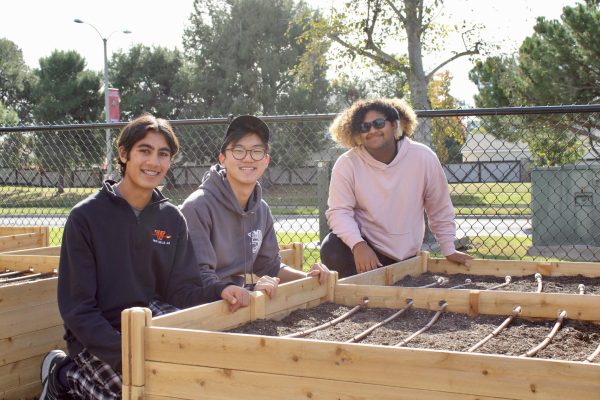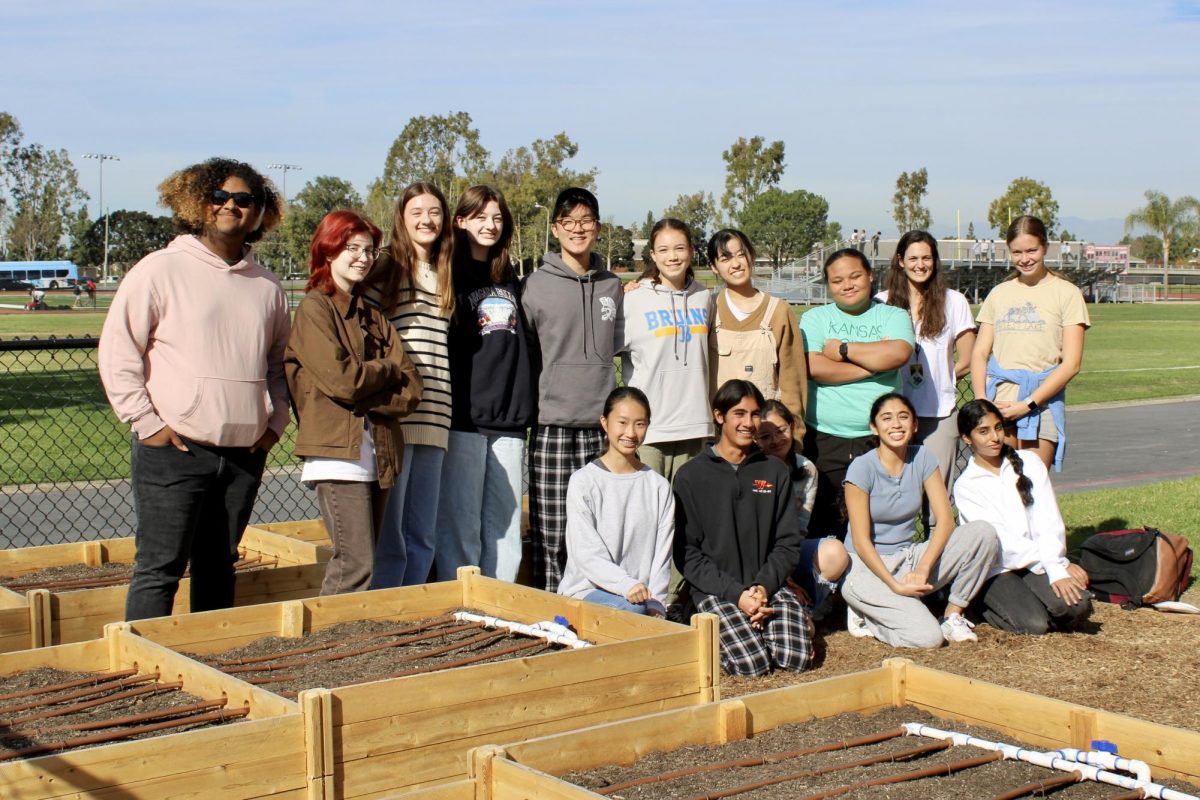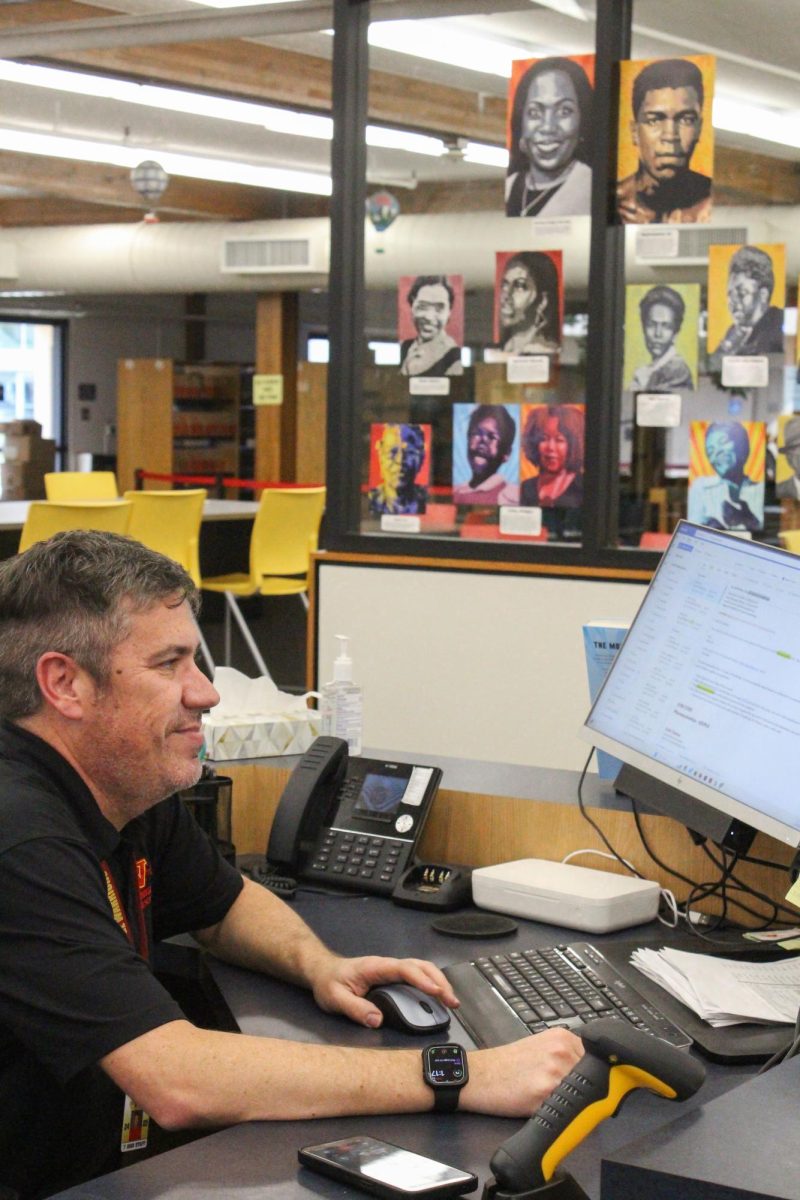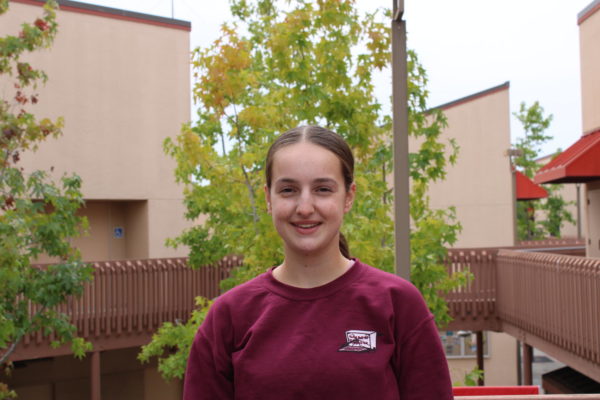Science teacher Jackie Walker and junior Matthew Chang have joined forces to cultivate change at Woodbridge High through the creation of a Climate Garden. This initiative has become a beacon for fighting climate change and advocating for a greater connection to nature in urban areas.
As Walker passionately puts it, the concept of a Climate Garden is gaining momentum far and wide.
“This is an idea that is gaining more attention and traction throughout the country and throughout the planet, which is very exciting for a lot of environmentalists,” Walker said.
Chang, a long-time environmental advocate, initially started Climate Garden at Woodbridge High to encourage others his age to join the campaign against the climate crisis through gardening and nature-based activities. His goal to motivate peers towards activism makes the concept of a Climate Garden both relevant and impactful.
“We hope to educate and inspire a new generation of environmental stewards through our work,” Chang said.
Currently, Climate Garden is composed of highly enthusiastic environmentalists, but members hope to extend its outreach to more students, drawing them in to participate in this green movement.
“We all understand the scientific benefits of community and school gardens, including their role in carbon sequestration, promoting biodiversity and creating hands-on educational opportunities for students to learn about sustainable practices,” Chang said.
Junior Carla Guertin, a valuable member of Climate Garden, emphasized that this project makes environmental education exciting and accessible for all students on campus.
“Building a garden at Woodbridge was also an interactive way to start the club and gain awareness of its cause, promoting sustainable alternatives and helping the earth,” Guertin said.
There are three separate branches of Climate Garden: the garden branch, the education branch and the communications branch.
After receiving a grant from the Irvine Public Schools Foundation, Climate Garden members were able to make Chang’s idea reality by initiating the actual construction of the physical garden.
“We’re building a garden on our campus at Woodbridge High, and then we have funds to also establish or enhance gardens at other schools,” Walker said.
On campus, the garden is located between the English building and the small field, with a black fence around it for the time being.
“The garden is composed of several raised beds and a turnkey watering system,” Chang said.
Although the planters are empty right now, they will be filled with organic produce once finished. As the spring season approaches, Climate Garden members look forward to start planting the garden.

“Now we’re just trying to finalize and have a plan of what foods do we want to grow, what native species do we want to do [and] what plants we can have that attract pollinators to make this a really fulfilling garden,” Walker said.
The Climate Garden project extends even further with the education branch, through an in-progress children’s book, working to educate people about climate change through the lens of a garden.
Much of Guertin’s responsibility in Climate Garden consists of helping to brainstorm the design and overall plot of this book, which will reach people from many schools.
“We got a grant from the mayor to promote climate education in K-12 schools to promote sustainability,” Guertin said.
Lastly, a podcast is in development, acting as the third method of engaging climate crisis education and expanding Climate Garden’s reach by communicating environmentalist advocacy with this dynamic medium.
“We’re trying to extend a personal project that Matthew started, but wanting to incorporate more students by being able to communicate about climate issues through the avenue of a podcast,” Walker said.
One of Climate Garden’s major goals is to foster a reconnection with nature, especially in bigger cities. As Walker claimed, as the world has shifted further towards modernism and technology, people have begun seeing themselves as separate from nature.
Aside from the upcoming children’s book and podcast episodes, Climate Garden members have countless plans to continue promoting hands-on gardening activities in the future. Once organic produce is growing on campus, there are many ideas for engaging workshops and meet-ups for those wanting to get involved in environmental advocacy, even on a small scale.
“If we grow herbs, having a little recipe swap where people can maybe have cilantro in their recipe and everyone can take some cilantro at the end. We’re wanting to grow food so that our Woodbridge community can use it in some way,” Walker said.
On a larger scale, if enough food is produced, Climate Garden members plan to donate it to Second Harvest Food Bank, or any other place where locally grown food can be given to those who are food insecure.
Chang stated that his greatest hope is to instill a deeper culture of sustainability at Woodbridge High, along with further environmental awareness among his fellow students.
“Educating this generation of future leaders and citizens about ways to positively contribute to the planet is our long-term goal,” Chang said.
The resurgence of gardening and growing food locally encourages a deeper connection with nature, environmental advocacy and a sense of community. By creating a way for people to come together in a natural space within an urban area, the Climate Garden contributes greatly against the daunting problem of climate change.








